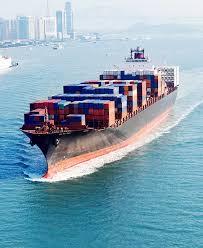The Marine Management Software Market is experiencing significant growth as maritime industries increasingly adopt digital solutions to streamline operations, enhance fleet performance, and ensure regulatory compliance. Marine management software encompasses a range of tools designed to improve vessel tracking, fleet operations, fuel management, maintenance scheduling, and regulatory reporting. With rising global trade volumes and the complexity of modern maritime logistics, shipping companies and port authorities are leveraging these systems to gain real-time insights, reduce operational costs, and enhance safety. The growing importance of sustainability and emissions compliance has also propelled demand for marine fleet analytics and fuel optimization modules, making the software a vital component of digital transformation in the marine sector.
In recent years, the industry has witnessed a surge in the integration of cloud computing, artificial intelligence (AI), and Internet of Things (IoT) technologies into maritime software solutions. These innovations allow for better predictive maintenance, route optimization, and performance monitoring of vessels. Companies are increasingly deploying cloud-based platforms to ensure scalability and secure data access across fleets dispersed globally. Moreover, cyber resilience has become a priority, pushing developers to incorporate advanced security protocols into software solutions. These technological enhancements are setting a new standard for digital maritime operations, enabling stakeholders to respond more effectively to dynamic market conditions and environmental regulations.
Get a sample PDF of the report at –
https://www.marketresearchfuture.com/sample_request/10769
The marine management software market is segmented based on deployment type, application, and end-user. By deployment, the market is categorized into cloud-based and on-premise solutions. Cloud-based systems are gaining traction due to their ease of accessibility, cost-effectiveness, and minimal infrastructure requirements. In terms of application, the market includes fleet management, crew management, compliance monitoring, inventory control, and port operations. Fleet and compliance management remain dominant segments, driven by international maritime safety and emissions standards. Regarding end-users, the software caters to shipping companies, vessel operators, port authorities, and logistics service providers. The diverse use cases across these segments illustrate the software’s versatility and essential role in maritime operations.
Key players in the marine management software market include ABB Ltd., DNV GL, SpecTec (part of Total Specific Solutions), Oracle Corporation, SAP SE, Wärtsilä Corporation, Bass Software Ltd., Helm Operations, StormGeo (A part of Alfa Laval), and Hanseaticsoft. These companies are investing heavily in research and development to offer integrated platforms capable of managing complex marine operations. Strategic collaborations and acquisitions are also shaping the competitive landscape. For example, Wärtsilä’s acquisition of Eniram and its integration into digital services underscores the industry's drive toward data-driven maritime solutions. Vendors are also focusing on user experience and mobile accessibility to improve operational efficiency on board and ashore.
Industry news highlights the growing adoption of artificial intelligence in marine software, enabling more accurate route planning and cargo forecasting. Several maritime startups are emerging with niche solutions targeting data analytics and sustainability compliance. In response to the International Maritime Organization's (IMO) decarbonization goals, software vendors are launching new modules focused on carbon intensity indicator (CII) and energy efficiency existing ship index (EEXI) compliance. Meanwhile, regulatory shifts and cyber threats are pushing developers to build robust, audit-ready platforms. These developments reflect the industry's strategic pivot towards smarter and greener maritime operations.
Recent developments in the marine management software market underscore the role of data integration and real-time monitoring. For instance, software platforms now offer unified dashboards combining weather data, engine diagnostics, and fuel consumption metrics to optimize voyages. Digital twins, which create virtual replicas of vessels, are being tested to simulate scenarios and enhance maintenance planning. Vendors are also enhancing interoperability, allowing software to seamlessly integrate with AIS (Automatic Identification System), GPS, and ERP systems. These advancements are empowering maritime companies to shift from reactive to predictive operations, ultimately improving safety, compliance, and profitability.
Market dynamics driving the growth of marine management software include increasing demand for operational efficiency, the rise of autonomous vessels, stringent regulatory frameworks, and a heightened focus on environmental sustainability. Conversely, challenges such as high implementation costs, resistance to digital transformation among traditional shipping companies, and cybersecurity concerns may hinder market expansion. Nevertheless, government initiatives promoting smart ports and digital shipping corridors are expected to catalyze long-term growth. Additionally, the ongoing expansion of international maritime trade offers significant opportunities for software vendors to scale their offerings across emerging markets.
Browse a Full Report –
https://www.marketresearchfuture.com/reports/marine-management-software-market-10769
Regionally, the marine management software market is witnessing robust growth in North America and Europe due to early technology adoption and strict environmental regulations. Asia-Pacific is emerging as a lucrative region, driven by the presence of major shipbuilding nations such as China, South Korea, and Japan, as well as rising investments in port infrastructure and smart maritime technologies. The Middle East and Africa are also showing potential due to increased maritime trade and port modernization efforts. Regional government support and international collaborations are further facilitating the adoption of digital marine solutions, positioning these regions as future growth hubs.
The Marine Management Software Market is poised for substantial expansion, driven by digitalization, regulatory pressures, and the evolving needs of global maritime logistics. As shipping companies and port operators seek smarter ways to manage assets, comply with emissions targets, and improve safety, the demand for comprehensive and innovative software solutions will continue to rise. Industry stakeholders that prioritize digital transformation and invest in agile, scalable software platforms are likely to gain a competitive edge in the evolving maritime landscape.
Top Trending Reports:
Business Process Management Market
Contact
Market Research Future (Part of Wantstats Research and Media Private Limited)
99 Hudson Street, 5Th Floor
New York, NY 10013
United States of America
+1 628 258 0071 (US)
+44 2035 002 764 (UK)
Email: sales@marketresearchfuture.com
Website: https://www.marketresearchfuture.com

